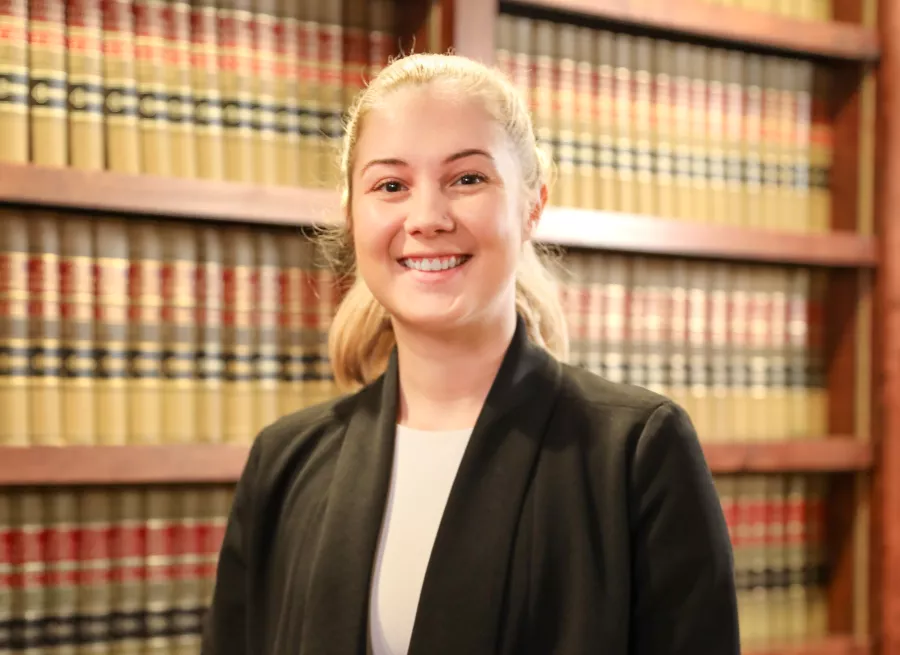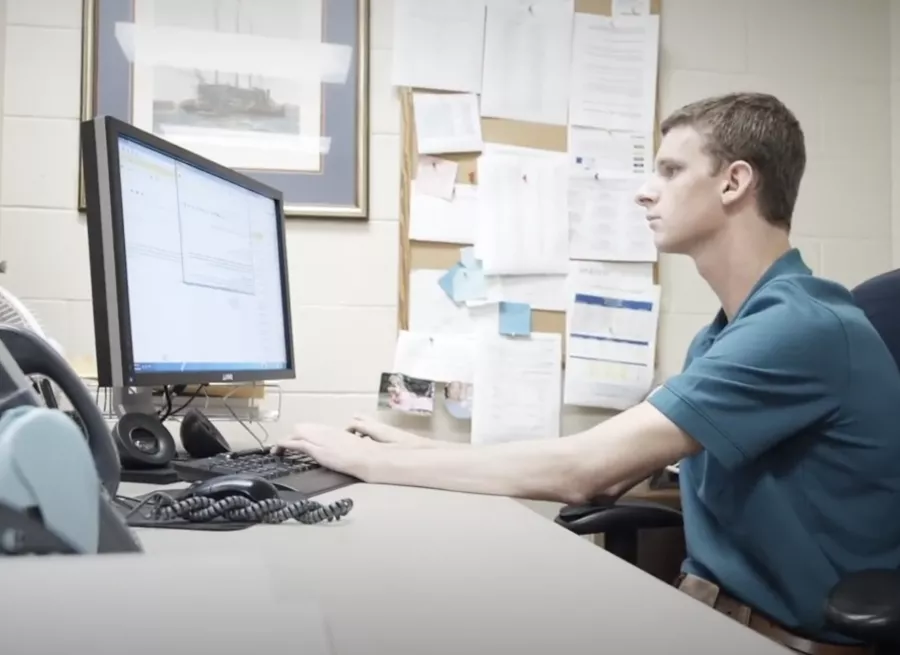Accounting
Associate in Applied Science
Overview
An Associate in Applied Science in Accounting is a solid entry point into the accounting profession. Graduates will gain a strong foundation in accounting principles, analytical skills, and popular software, including QuickBooks and Excel, equipping them to enter the workforce with confidence. Completing this associate’s degree can open doors to entry-level positions, laying the groundwork for a successful career in accounting.
Graduates of the accounting program will be able to:
Analyze and evaluate financial transactions by following Generally Accepted Accounting Principles (GAAP), demonstrating the application to real-world scenarios
Assess and interpret the impact of business operations within the regulatory environment, integrating ethical considerations to ensure compliance and mitigate risk.
Utilize analytical techniques to interpret financial data and make informed recommendations to improve organizational performance and decision-making processes.
Demonstrate competency in accounting information systems and utilizing technology to enhance efficiency, accuracy, and security.
Accreditation
This program is accredited by the Accreditation Council for Business Schools and Programs (ACBSP). Per accreditation requirements, this comprehensive student achievement chart details this program's graduate placement, persistence and retention rates, and enrollment.

School of Business Mission Statement
Our mission is to provide high-quality and affordable business education in accounting, office support services, marketing, and management that prepares students for successful careers in the dynamic and competitive marketplace. Our programs are designed to be accessible and transferable, allowing students to transition seamlessly into the workforce or continue their education.
Upon degree completion, students will be able to:
- Use critical and creative thinking to solve problems
- Apply clear and effective communication skills
- Demonstrate professional and ethical conduct
- Use information literacy for effective vocational and/or academic research
- Apply quantitative reasoning and/or scientific inquiry to solve practical problems
Sample Program Plan and Costs
Students must earn a grade of “C” or better in all of the courses offered within the Business Department for the grade to be counted toward graduation. Specifically, these include courses with the following prefixes: ACC, BAF, BUS, CPT, MGT, and MKT.
Class Delivery Methods
View current courses offered via our online course directory.
| On-Campus | Traditional. Classes meet on campus. |
|---|---|
| Virtual | 100% online. Meets with a live instructor and classmates on specific days, at specific times. Uses web conferencing software, like Zoom. |
| Hybrid | Some classes on campus. Some classes online or virtual. |
| Online | 100% online. Due dates for projects and assignments. Self-paced work on your time. |
Full Time Schedule
| Semester | Course ID | Course Title | Classroom | Online | Hybrid | Virtual | Credits |
|---|---|---|---|---|---|---|---|
| Semester 1 (16 Credit Hours) |
COL-101 |
College Orientation College Orientation ID: COL-101 Credit Hours: 1 This course may include selected topics such as career planning, study skills, stress management, tutoring, group guidance, and other subjects to facilitate student success. |
• | • | • | 1 | |
| ENG-101 |
English Comp I English Comp I ID: ENG-101 Credit Hours: 3 This is a (college transfer) course in which the following topics are presented: a study of composition in conjunction with appropriate reading and multimedia selections, with frequent assignments to reinforce effective writing. A review of the basic techniques of research is also presented. |
• | • | • | • | 3 | |
| MAT-120 |
Probability and Statistics Probability and Statistics ID: MAT-120 Credit Hours: 3 This course is an introduction to probability and statistics. Topics include organization of data, calculating probabilities, counting principles, binomial and normal distributions, central limit theorem, confidence, intervals, hypothesis tests, linear regression, and correlation. (Graphic calculator required) |
• | • | • | 3 | ||
| CPT-170 |
Microcomputer Applications Microcomputer Applications ID: CPT-170 Credit Hours: 3 This course introduces microcomputer applications software, including word processing, data bases, spreadsheets, graphs, and their integration. |
• | • | • | 3 | ||
| PHI-115 |
Contemporary Moral Issues Contemporary Moral Issues ID: PHI-115 Credit Hours: 3 This course examines moral issues in contemporary society, including basic principles and applications of ethics. |
• | • | 3 | |||
| BUS-101 |
Introduction to Business Introduction to Business ID: BUS-101 Credit Hours: 3 This course is a study of the nature of business activity in relation to the economic society, including how a business is owned, organized, managed, and controlled. |
• | • | 3 | |||
| Semester 2 (15 Credit Hours) |
ENG-102 |
English Comp II English Comp II ID: ENG-102 Credit Hours: 3 This is a (college transfer) course in which the following topics are presented: development of writing skills through logical organization, effective style, critical reading, and research. |
• | • | • | • | 3 |
| ECO-210 |
Macroeconomics Macroeconomics ID: ECO-210 Credit Hours: 3 This course includes the study of fundamental principles and policies of a modern economy to include markets and prices, national income accounting, cycles, employment theory and fiscal policy, banking and monetary controls, and the government's role in economic decisions and growth. |
• | • | 3 | |||
| ACC-101 |
Accounting Principles I Accounting Principles I ID: ACC-101 Credit Hours: 3 This course introduces basic accounting procedures for analyzing, recording and summarizing financial transactions, adjusting and closing the financial records at the end of the accounting cycle, and preparing financial statements. Students identify sound ethical and personal values. |
• | • | • | 3 | ||
| ACC-124 |
Individual Tax Procedures Individual Tax Procedures ID: ACC-124 Credit Hours: 3 This course is a study of the basic income tax structure from the standpoint of the individual, including the preparation of individual income tax returns. |
• | • | 3 | |||
| BUS-130 |
Business Communications Business Communications ID: BUS-130 Credit Hours: 3 This course covers the application of communication skills to situations routinely encountered in business environments. Students will generate oral and written reports and presentation. |
• | • | • | • | 3 | |
| Semester 3 (15 Credit Hours) |
ACC-102 |
Accounting Principles II Accounting Principles II ID: ACC-102 Credit Hours: 3 This course emphasizes managerial accounting theory and practice in basic accounting and procedures for cost accounting, budgeting, cost-volume analysis, and financial statement analysis. |
• | • | • | 3 | |
| ACC-246 |
Integrated Accounting Software Integrated Accounting Software ID: ACC-246 Credit Hours: 3 This course includes the use of pre-designed integrated accounting software for accounting problems. |
• | 3 | ||||
| BUS-121 |
Business Law I Business Law I ID: BUS-121 Credit Hours: 3 This course is a study of legal procedures, law and society, classifications and systems of law, the tribunals administering justice and their actions, contracts, sales, transfer of titles, rights and duties of the parties, conditions, and warranties. |
• | • | • | • | 3 | |
| ACC-201 |
Intermediate Accounting I Intermediate Accounting I ID: ACC-201 Credit Hours: 3 This course explores fundamental processes of accounting theory, including the preparation of financial statements. Also covered are the time value of money, cash and receivables, and the valuation of inventories. Professional ethics and generally accepted accounting principles are introduced. |
• | 3 | ||||
| Accounting Elective | 3 | ||||||
| Semester 4 (16 Credit Hours) |
ACC-202 |
Intermediate Accounting II Intermediate Accounting II ID: ACC-202 Credit Hours: 3 This course covers the application of accounting principles and concepts to account evaluation and income determination, including special problems peculiar to corporations and the analysis of financial reports. Accounting for the acquisition and disposal of long-term assets and procedures for handling current and long-term liabilities are covered. |
• | 3 | |||
| ACC-240 |
Computerized Accounting Computerized Accounting ID: ACC-240 Credit Hours: 3 This course is a study of using the computer to design and implement various accounting functions, including financial transactions, records, statements, reports and documents. |
• | 3 | ||||
| ACC-245 |
Accounting Applications Accounting Applications ID: ACC-245 Credit Hours: 3 This course introduces microcomputer accounting using data base software and/or electronic spreadsheets. |
• | 3 | ||||
| IDS-112 |
Employability Skills for Careers Employability Skills for Careers ID: IDS-112 Credit Hours: 1 This course develops employability skills including resume writing, interviewing, presentation delivery and soft skills. |
• | • | • | 1 | ||
| Accounting Elective | 3 | ||||||
| Accounting Elective | 3 | ||||||
| Total Credit Hours | 62 | ||||||
| Estimated Cost Financial Aid |
$12,648.00 Not including fees and equipment |
||||||
Part Time Schedule
| Semester | Course ID | Course Title | Classroom | Online | Hybrid | Virtual | Credits |
|---|---|---|---|---|---|---|---|
| Semester 1 (7 Credit Hours) |
COL-101 |
College Orientation College Orientation ID: COL-101 Credit Hours: 1 This course may include selected topics such as career planning, study skills, stress management, tutoring, group guidance, and other subjects to facilitate student success. |
• | • | • | 1 | |
| ENG-101 |
English Comp I English Comp I ID: ENG-101 Credit Hours: 3 This is a (college transfer) course in which the following topics are presented: a study of composition in conjunction with appropriate reading and multimedia selections, with frequent assignments to reinforce effective writing. A review of the basic techniques of research is also presented. |
• | • | • | • | 3 | |
| MAT-120 |
Probability and Statistics Probability and Statistics ID: MAT-120 Credit Hours: 3 This course is an introduction to probability and statistics. Topics include organization of data, calculating probabilities, counting principles, binomial and normal distributions, central limit theorem, confidence, intervals, hypothesis tests, linear regression, and correlation. (Graphic calculator required) |
• | • | • | 3 | ||
| Semester 2 (9 Credit Hours) |
CPT-170 |
Microcomputer Applications Microcomputer Applications ID: CPT-170 Credit Hours: 3 This course introduces microcomputer applications software, including word processing, data bases, spreadsheets, graphs, and their integration. |
• | • | • | 3 | |
| PHI-115 |
Contemporary Moral Issues Contemporary Moral Issues ID: PHI-115 Credit Hours: 3 This course examines moral issues in contemporary society, including basic principles and applications of ethics. |
• | • | 3 | |||
| BUS-101 |
Introduction to Business Introduction to Business ID: BUS-101 Credit Hours: 3 This course is a study of the nature of business activity in relation to the economic society, including how a business is owned, organized, managed, and controlled. |
• | • | 3 | |||
| Semester 3 (6 Credit Hours) |
ENG-102 |
English Comp II English Comp II ID: ENG-102 Credit Hours: 3 This is a (college transfer) course in which the following topics are presented: development of writing skills through logical organization, effective style, critical reading, and research. |
• | • | • | • | 3 |
| ECO-210 |
Macroeconomics Macroeconomics ID: ECO-210 Credit Hours: 3 This course includes the study of fundamental principles and policies of a modern economy to include markets and prices, national income accounting, cycles, employment theory and fiscal policy, banking and monetary controls, and the government's role in economic decisions and growth. |
• | • | 3 | |||
| Semester 4 (9 Credit Hours) |
ACC-101 |
Accounting Principles I Accounting Principles I ID: ACC-101 Credit Hours: 3 This course introduces basic accounting procedures for analyzing, recording and summarizing financial transactions, adjusting and closing the financial records at the end of the accounting cycle, and preparing financial statements. Students identify sound ethical and personal values. |
• | • | • | 3 | |
| ACC-124 |
Individual Tax Procedures Individual Tax Procedures ID: ACC-124 Credit Hours: 3 This course is a study of the basic income tax structure from the standpoint of the individual, including the preparation of individual income tax returns. |
• | • | 3 | |||
| BUS-130 |
Business Communications Business Communications ID: BUS-130 Credit Hours: 3 This course covers the application of communication skills to situations routinely encountered in business environments. Students will generate oral and written reports and presentation. |
• | • | • | • | 3 | |
| Semester 5 (9 Credit Hours) |
ACC-102 |
Accounting Principles II Accounting Principles II ID: ACC-102 Credit Hours: 3 This course emphasizes managerial accounting theory and practice in basic accounting and procedures for cost accounting, budgeting, cost-volume analysis, and financial statement analysis. |
• | • | • | 3 | |
| ACC-246 |
Integrated Accounting Software Integrated Accounting Software ID: ACC-246 Credit Hours: 3 This course includes the use of pre-designed integrated accounting software for accounting problems. |
• | 3 | ||||
| BUS-121 |
Business Law I Business Law I ID: BUS-121 Credit Hours: 3 This course is a study of legal procedures, law and society, classifications and systems of law, the tribunals administering justice and their actions, contracts, sales, transfer of titles, rights and duties of the parties, conditions, and warranties. |
• | • | • | • | 3 | |
| Semester 6 (6 Credit Hours) |
ACC-201 |
Intermediate Accounting I Intermediate Accounting I ID: ACC-201 Credit Hours: 3 This course explores fundamental processes of accounting theory, including the preparation of financial statements. Also covered are the time value of money, cash and receivables, and the valuation of inventories. Professional ethics and generally accepted accounting principles are introduced. |
• | 3 | |||
| Accounting Elective | 3 | ||||||
| Semester 7 (9 Credit Hours) |
ACC-202 |
Intermediate Accounting II Intermediate Accounting II ID: ACC-202 Credit Hours: 3 This course covers the application of accounting principles and concepts to account evaluation and income determination, including special problems peculiar to corporations and the analysis of financial reports. Accounting for the acquisition and disposal of long-term assets and procedures for handling current and long-term liabilities are covered. |
• | 3 | |||
| ACC-240 |
Computerized Accounting Computerized Accounting ID: ACC-240 Credit Hours: 3 This course is a study of using the computer to design and implement various accounting functions, including financial transactions, records, statements, reports and documents. |
• | 3 | ||||
| ACC-245 |
Accounting Applications Accounting Applications ID: ACC-245 Credit Hours: 3 This course introduces microcomputer accounting using data base software and/or electronic spreadsheets. |
• | 3 | ||||
| Semester 8 (7 Credit Hours) |
IDS-112 |
Employability Skills for Careers Employability Skills for Careers ID: IDS-112 Credit Hours: 1 This course develops employability skills including resume writing, interviewing, presentation delivery and soft skills. |
• | • | • | 1 | |
| Accounting Elective | 3 | ||||||
| Accounting Elective | 3 | ||||||
| Total Credit Hours | 62 | ||||||
| Estimated Cost Financial Aid |
$12,648.00 Not including fees and equipment |
||||||
What’s next after I complete this program?
Enter the Workforce
Students have the option to use the A.A.S degree in accounting to work full-time in the accounting profession while continuing on to earn a bachelor’s degree.
Further Your Education
While earning an associate degree, earn accounting certifications at MTC in Excel, QuickBooks, Sage Accounting Software, Payroll, and prep to become a Professional Certified Bookkeeper (CB). Join American Payroll Association (APA) and become a Certified Payroll Professional.



